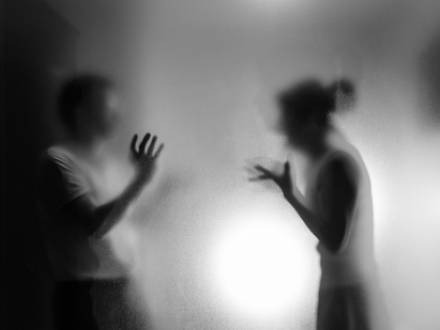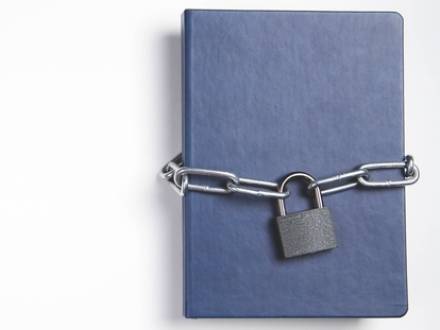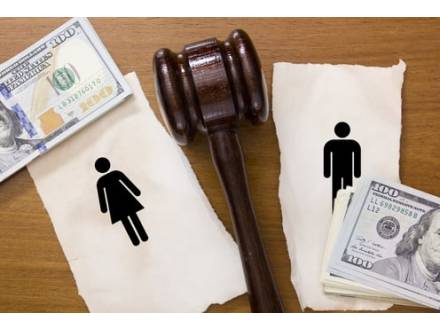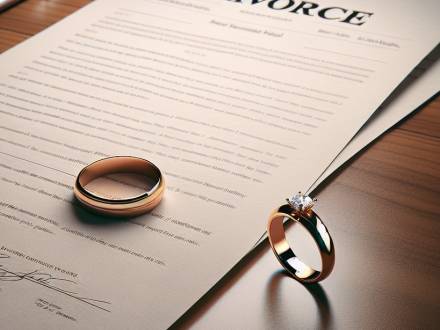Recent Blog Posts
How is the Duration of Alimony Determined in Illinois?
 Divorce affects millions of families each year. According to the Centers for Disease Control and Prevention, there were over 600,000 divorces in the United States in recent years. For couples with income differences, spousal support (commonly called alimony) helps the lower-earning spouse maintain financial stability after divorce.
Divorce affects millions of families each year. According to the Centers for Disease Control and Prevention, there were over 600,000 divorces in the United States in recent years. For couples with income differences, spousal support (commonly called alimony) helps the lower-earning spouse maintain financial stability after divorce.
If you are going through a divorce in Illinois in 2026, understanding how long alimony payments may last is important for planning your financial future. A Geneva, IL divorce attorney can help you understand what to expect.
Can We Decide on Alimony for Ourselves?
Yes, absolutely. Illinois courts prefer to see couples figure out issues in their divorce on their own, or with the help of mediators, whenever possible. If you and your spouse can reach an agreement that feels fair to both of you, the court will likely enforce it.
How Do Courts Handle False Allegations in Divorce?
 It’s not surprising that divorce can cause strong feelings, acts of desperation, and even revenge. Sometimes, this brings out the worst in people who are willing to make accusations that are not true. False allegations in divorce can involve claims of abuse, addiction, cheating, or bad parenting. These accusations can damage your reputation and drag out your case. Even worse, false accusations have the potential to affect child custody decisions.
It’s not surprising that divorce can cause strong feelings, acts of desperation, and even revenge. Sometimes, this brings out the worst in people who are willing to make accusations that are not true. False allegations in divorce can involve claims of abuse, addiction, cheating, or bad parenting. These accusations can damage your reputation and drag out your case. Even worse, false accusations have the potential to affect child custody decisions.
Illinois courts take all allegations seriously, but judges understand that some people make false claims to gain an advantage. If your spouse is lying about you to try to get the upper hand, you need help from an experienced DeKalb County divorce attorney with The Law Office of Matthew M. Williams, P.C..
Common False Allegations in Divorce
False allegations are untrue claims one spouse makes about the other during divorce proceedings. Common types of false allegations in divorce include:
Can Divorce Records Be Sealed in Illinois?
 For many people, the idea that their divorce information will become part of the public record adds another layer of stress to an already difficult time. The good news is that in some situations, you can seal your divorce records in Illinois. This means most people will not be able to access the details of your case.
For many people, the idea that their divorce information will become part of the public record adds another layer of stress to an already difficult time. The good news is that in some situations, you can seal your divorce records in Illinois. This means most people will not be able to access the details of your case.
Understanding whether you qualify to seal your divorce records is a good place to start. If you are concerned about keeping your 2026 Illinois divorce private, our Kane County divorce attorneys can help you understand your options.
What Does It Mean to Seal Divorce Records?
When a Kane County family court seals divorce records, it restricts public access to the documents in your case. This means that people cannot simply walk into a courthouse or search online databases to find information about your divorce. Sealed records are hidden from the general public.
What is the Procedure on the Day of the Prove-Up Hearing?
 Prove-up is the term used in Illinois family courts for the final court date of a divorce. This is the date set by the judge to finalize the divorce after an agreement has been reached between the spouses. Both spouses will appear before the judge, where they will be asked a series of questions to ensure that they are in agreement and that all matters have been settled.
Prove-up is the term used in Illinois family courts for the final court date of a divorce. This is the date set by the judge to finalize the divorce after an agreement has been reached between the spouses. Both spouses will appear before the judge, where they will be asked a series of questions to ensure that they are in agreement and that all matters have been settled.
The prove-up hearing represents the culmination of your divorce process. For many couples, this brief court appearance is the only time they will see the inside of a courtroom during their divorce. Understanding what happens during prove-up and how to prepare makes the experience less stressful. If you have questions about your upcoming 2026 prove-up hearing, speaking to your St. Charles, IL family law attorney can be helpful.
Do I Have to Attend the Prove-Up Hearing?
While both spouses may attend the prove-up hearing, the Petitioner (the spouse who originally filed for divorce) is usually the only one required to attend. The Respondent can choose to appear and testify, but they are not usually required to do so. The prove-up hearing can proceed without the Respondent when they have entered an Appearance and signed the agreements.
Can Conversion Reverse the Commingling of Separate Assets?
 Many spouses are stunned when they find out during their divorce that the property, gift, or inheritance they believed was their separate property turns out to be a marital asset, thanks to commingling. If a person owns a home or other property, has an inheritance, or has amassed a sizeable bank account before marriage, these assets belong to that spouse alone unless they have been commingled.
Many spouses are stunned when they find out during their divorce that the property, gift, or inheritance they believed was their separate property turns out to be a marital asset, thanks to commingling. If a person owns a home or other property, has an inheritance, or has amassed a sizeable bank account before marriage, these assets belong to that spouse alone unless they have been commingled.
Commingling occurs when a separate asset is mixed in with marital assets, changing it into a marital asset that needs to be divided in a divorce. For example, suppose one spouse owns a home that was left to them by their great aunt. If the spouse who owns the home adds the other spouse to the title, it could easily be claimed as marital property by the second spouse in divorce court.
There are other, less obvious and often unintentional ways property can be commingled. Our Kane County divorce attorney handles complex property division cases and can help you understand what your options are.
Can I Sue My Husband for Cheating in Illinois?
 When a spouse cheats, it can destroy trust and cause deep emotional pain. Is that enough to warrant legal action in Illinois? State law handles adultery differently than it once did. While cheating may affect some parts of a divorce, it is not a reason to sue a spouse. Many people find that understanding how Illinois courts view adultery helps them feel more prepared before starting the divorce process. If you are struggling with the aftermath of infidelity, speaking with a Yorkville, IL divorce lawyer can help you make informed decisions about your legal options.
When a spouse cheats, it can destroy trust and cause deep emotional pain. Is that enough to warrant legal action in Illinois? State law handles adultery differently than it once did. While cheating may affect some parts of a divorce, it is not a reason to sue a spouse. Many people find that understanding how Illinois courts view adultery helps them feel more prepared before starting the divorce process. If you are struggling with the aftermath of infidelity, speaking with a Yorkville, IL divorce lawyer can help you make informed decisions about your legal options.
Is Adultery Grounds for Divorce in Illinois?
Illinois is a no-fault divorce state under 750 ILCS 5/401(a). This means you do not have to prove that your spouse did something wrong to end your marriage. Instead, the court only needs to see that there are irreconcilable differences, meaning your marriage has broken down beyond repair.
Workers’ Compensation Benefits in Divorce
 Workers’ compensation benefits protect employees and their families after a workplace injury or illness. These benefits give financial support while a worker recovers, helping cover medical expenses and lost wages. But when a marriage ends, people wonder how these benefits are treated in a divorce.
Workers’ compensation benefits protect employees and their families after a workplace injury or illness. These benefits give financial support while a worker recovers, helping cover medical expenses and lost wages. But when a marriage ends, people wonder how these benefits are treated in a divorce.
If you are going through a divorce in Illinois in 2025 and you or your spouse are receiving workers’ compensation benefits or a personal injury settlement, you probably have questions. Our Aurora, IL divorce attorneys can help you understand how workers’ comp and other settlements are handled in a divorce and answer any other questions you have.
Are Workers’ Compensation Benefits Considered Marital Property in Illinois?
Under the Illinois Marriage and Dissolution of Marriage Act, property is categorized as either marital or non-marital during a divorce. Marital property includes assets that were acquired during the marriage, while non-marital property is usually assets one spouse owned before the marriage. Inheritance or gifts that were given specifically to one spouse may also be non-marital property.
How Do I Change My Child’s Name After an Illinois Divorce?
 After a divorce, many people change their last names as a way to mark a new chapter in life. For adults, this process is relatively simple. Usually, it is just handled as part of the divorce decree. But when it comes to changing a child’s name after a divorce, the situation is more complicated.
After a divorce, many people change their last names as a way to mark a new chapter in life. For adults, this process is relatively simple. Usually, it is just handled as part of the divorce decree. But when it comes to changing a child’s name after a divorce, the situation is more complicated.
In Illinois, both parents have legal rights to their child, including having a say in whether the child’s name can be changed. Although you may want to distance yourself from your spouse as much as possible, changing your child’s name is not always an option. As of October 2025, Illinois courts continue to apply strict name-change rules for children.
Our DuPage County family law attorneys at The Law Office of Matthew M. Williams, P.C. can help you protect your rights while keeping your child’s best interests at the center of every decision. If you are interested in changing your child’s name after divorce, talk to us to find out about your options.
Does it Matter Who Files for Divorce First in Illinois?
 Divorce is an emotionally challenging process, and it is crucial to understand the legal aspects involved to navigate it effectively. One commonly asked question is "Should I file for divorce first?" Under the Illinois Marriage and Dissolution of Marriage Act (750 ILCS 5/101), the judge’s job is to reach a fair result based on facts, rather than on which spouse filed first.
Divorce is an emotionally challenging process, and it is crucial to understand the legal aspects involved to navigate it effectively. One commonly asked question is "Should I file for divorce first?" Under the Illinois Marriage and Dissolution of Marriage Act (750 ILCS 5/101), the judge’s job is to reach a fair result based on facts, rather than on which spouse filed first.
That said, filing first can still affect some parts of the process. It can affect where the case starts, how the early motions are scheduled, and who speaks first at trial. This blog will explore the implications of being the first to file for divorce in Illinois, shedding light on the legal considerations that may arise during this crucial decision. Having an experienced St. Charles, IL family law attorney by your side can help you make the best decisions for your divorce and your future.
Understanding Temporary Custody Orders
 When a couple with minor children decides to divorce, setting up a parenting plan for the children is one of the most stressful parts of the process. No matter what the parents want, in Illinois, the court’s goal is to try to make sure that children stay in regular contact with both parents.
When a couple with minor children decides to divorce, setting up a parenting plan for the children is one of the most stressful parts of the process. No matter what the parents want, in Illinois, the court’s goal is to try to make sure that children stay in regular contact with both parents.
However, before a divorce is final, the chaos of the process may mean that children do not have a clear and consistent living arrangement. One parent may move out of the family home, or there may be an order of protection or other complications.
In such cases, a temporary custody order can protect children while parents work through the divorce. Temporary orders are designed to create stability and predictability for children. The goal is to ensure that a child’s day-to-day needs are met during a highly stressful time.
Working with an experienced Batavia child custody attorney can help the entire divorce process be more predictable. If you are hoping to get a temporary custody order, talk to us today by calling 630-409-8184 and scheduling a free consultation.

 630-409-8184
630-409-8184













